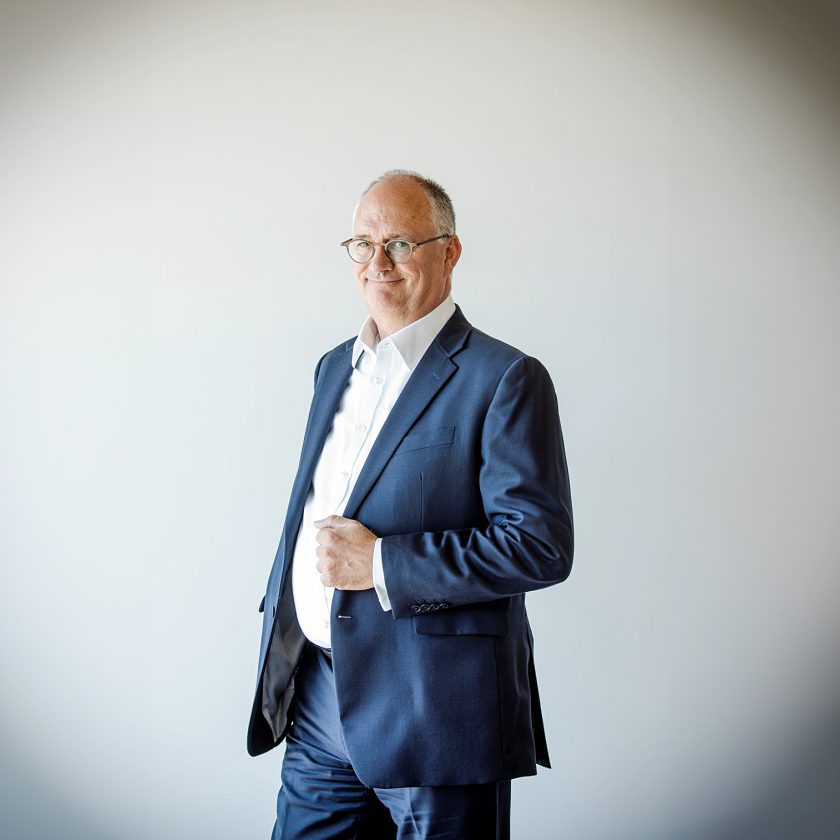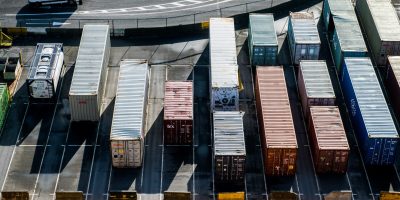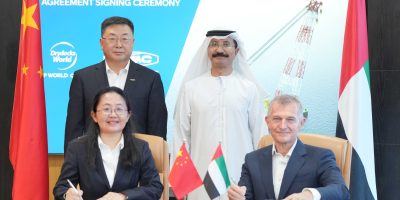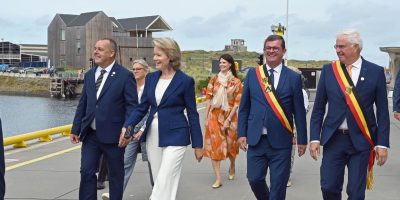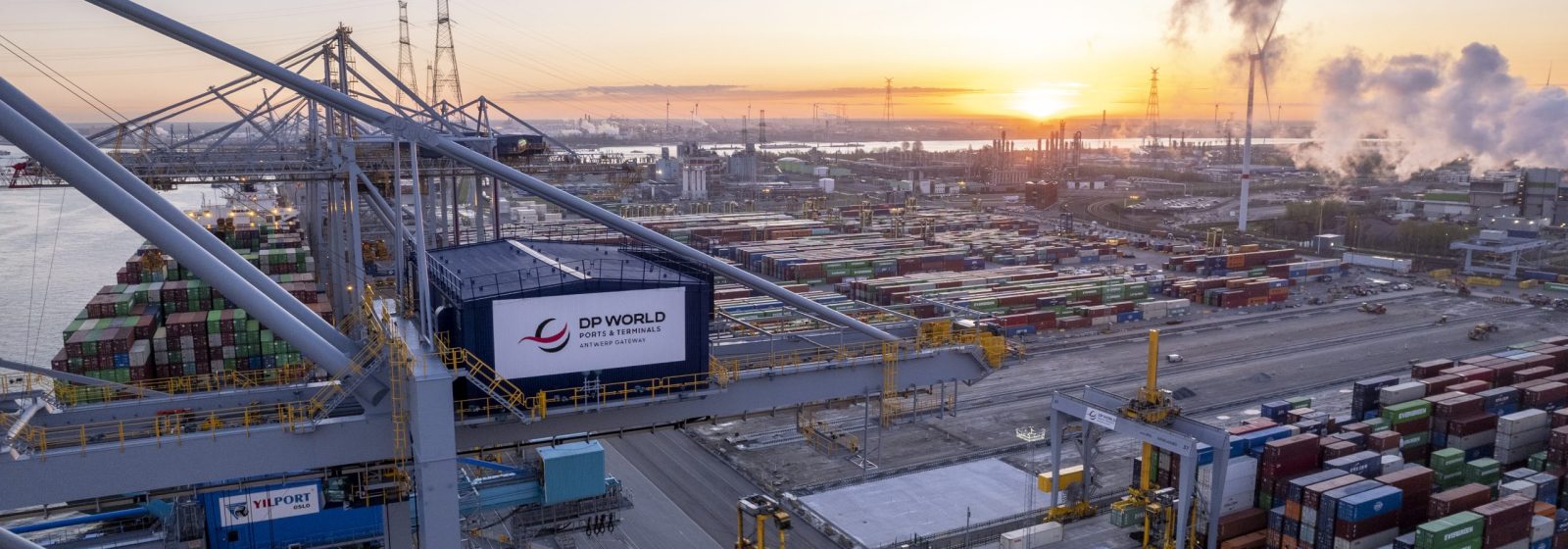
Nawaf Abdulla has been with DP World for 26 years, holding various positions in Dubai, Djibouti, Vietnam and Hong Kong before becoming CEO of DP World in Limassol in February 2020. Now he is taking over from Dirk Van den Bosch as CEO DP World Antwerp.
But DP World is also in full transition with the implementation of a new strategy. Flows also recently had an interview about this with Markus Kanis, chief commercial officer Logistics Europe at DP World. “With DP World, we want to market ourselves as a logistics company,” Kanis said.
Mr Abdulla, let’s first look at the global situation. DP World is reorienting itself towards more end-to-end logistics. How is this turnaround going?
Nawaf Abdulla (NA): “DP World started this operation five years ago and it is still ‘ongoing’. We are still in full transformation in terms of the ports and terminals where we operate. That is in the long-term planning. We are also in the process of expanding our warehouses and logistics services. It takes time to set up new business structures. We also want to do that in a conscious way and not in a hurry.”
Are there any concrete plans for Antwerp in this context?
NA: “We will definitely realise additional business in Belgium. We are looking at the different market segments and where we can realise added value. A final decision has not yet been made, but Belgium and Antwerp will definitely be part of our end-to-end trade solutions.”
Isn’t DP World getting more and more in the way of customers, such as shipping companies?
Dirk Van den Bosch (DVdB): “We strongly believe in partnerships and can do our bit there. Our terminals are the link to customers. Besides, the market is big enough. Many of our customers have also become active in ‘our business’. We have seen that more as an incentive, not as direct competition.”
“For example, with the acquisition of Unifeeder, we have established a strong feeder service for Europe, the Middle East and Asia. It plays a big role in connecting liner services with the last mile. This has created a lot of new opportunities, such as in Serbia.”
DP World has a terminal in both Antwerp and Rotterdam. Is there much competition between them?
DVdB: “There is always healthy competition, from terminal to terminal, but we also work together. Both are joint ventures where DP World is shareholder and manager, although the set-up is different. Antwerp Gateway’s shareholders are more terminal-oriented. In Rotterdam Gateway, it’s the shipping lines – in this case also the customers – who determine the strategy. So in Antwerp we look more broadly at every possible shipping company/customer, in Rotterdam this is limited.”
“Rotterdam is a fully automated terminal that is constant and reliable. The big advantage of Antwerp Gateway is that we can handle peaks and troughs flexibly because we are semi-automated. This allows us to respond much better to changing realities.”
In Antwerp, the realisation of the Extra Container Capacity (ECA) project remains on hold for the time being. How long will DP World wait for that?
DVdB: “The ECA project will be realised, but not in 2030 as the plans had prescribed We cannot ignore the fact that Antwerp desperately needs that extra container capacity. From DP World, we don’t have a deadline. We are realistic and realise that it will not be for tomorrow. Furthermore, there are still some challenges to be explored to make the project viable.”
“The big question is: what will Port of Antwerp-Bruges do until ECA is delivered, because additional capacity is needed NOW. Everyone lacks capacity. If no form of additional capacity can be offered in the interim period, there is a risk that the Port of Antwerp will lose customers. If you cannot offer your customers prospects for growth, they will naturally look elsewhere for alternatives. And we must avoid that at all times because that is a threat to Port of Antwerp-Bruges.”
How do you stand on that, Mr Abdulla?
NA: “Meanwhile, I am familiar with the dossier and if Port of Antwerp-Bruges wants to remain at the top of European ports, it is necessary to expand capacity in the coming years. If you look at the trends that are emerging now, you are going to miss that extra capacity very badly in the next five to 10 years.”
“The port of Antwerp is a competitive environment, with high volumes of goods, but with limited space and limited access. This will create additional pressure on the port. The ECA project has to happen. We expect another announcement within four to five years that the project will fall into a final fold.”
Continue reading below photo
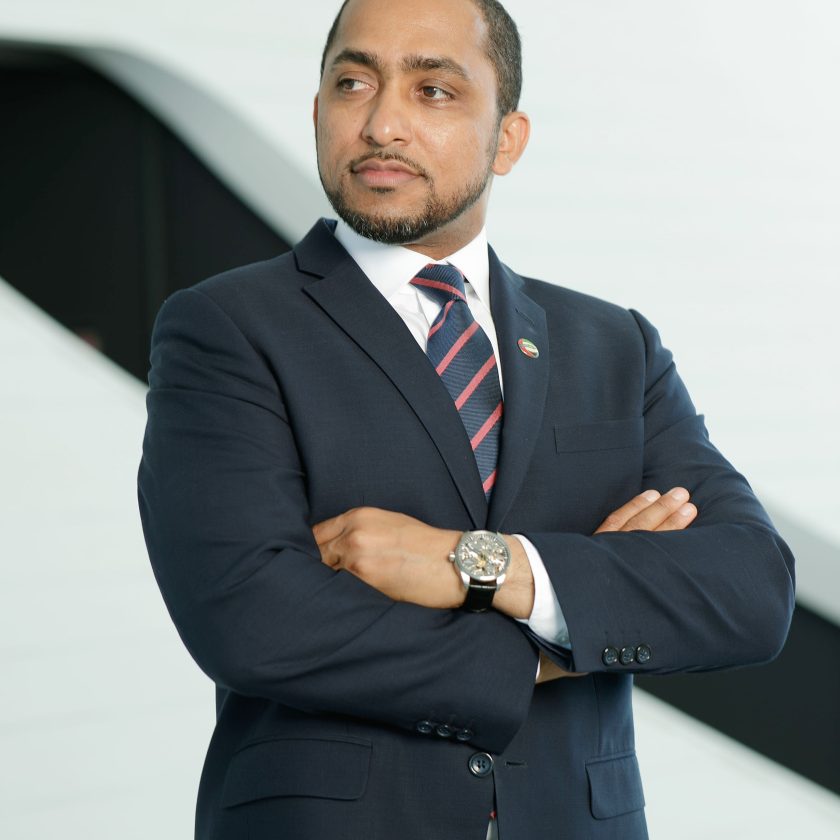
What opportunities and challenges do you still see for Antwerp, Mr Van den Bosch?
DVdB: “The biggest opportunity for Port of Antwerp-Bruges is the realisation of the ECA project. The sooner additional capacity is added, the stronger our competitive position. Moreover, as an opportunity, there is the further development of digital applications that improve logistics efficiency and security within the Port of Antwerp. The first steps have already been taken for this with the ‘Inbound Release Platform’ and ‘Certified Pick up’.”
“Furthermore, I do see some challenges for Port of Antwerp-Bruges. There is the issue of nitrogen (which compromised INEOS’ Project One, ed.), but also the taxes that are changed during the process. In addition, I see a lot of rising costs, such as those for labour. On the other hand, the whole energy transition involves heavy investments, but it also offers many opportunities. The Port Authority and the government need to work more closely together to increase the port’s competitiveness and create the value that shipping companies and shippers are looking for.”
How do you look at the port community today. Is there enough cooperation?
DVdB: “Upon my return to Antwerp, I did notice some improvement in terms of cooperation, but it is still not enough. The challenges we face cannot be solved by individuals or companies alone. Individualism is a bit of a Belgian disease, but in the port we need to be able to transcend that individualism. The port of Antwerp acts and competes on a global level. From the private sector over the port authority to the government, all parties must discuss together and openly what the challenges are and how they will be tackled. Only in this way can we keep Port of Antwerp-Bruges internationally competitive.”
What do you expect from your new role, Mr Abdulla?
NA: “It will be one of the most challenging assignments for me, at various levels. Antwerp Gateway is part of a crucial port infrastructure. It is a dynamic environment with what we call ‘direct cargo activities’, which then continue by barge or rail. It’s a unique type of port activity and the challenge is to make sure it all runs smoothly.”
How do you look back on your career, Mr Van den Bosch?
DVdB: “I have been active for 39 years now and I have always been able to apply my knowledge and experience. Everything I have learned, I have used. What’s important here is that you have a good understanding of what your customers want. I have also seen a lot of changes. When I started at Maersk in 1982, the biggest ship had a capacity of 1,800 teu …
I have also seen some big trends, such as “containerisation” through globalisation, which has simplified the transportation of goods. A second trend is moving production from Europe and to China, for me the epitome of globalisation. A third is the digitalisation of the entire supply chain, which has also had a big impact. As a fourth and final trend, I think we are now at a turning point again, with globalisation being questioned. Globalisation has made a lot possible and we should continue to build on it, but it might take a different form.”
What may we wish you on your farewell?
DVdB: “First and foremost, good health and a long life. I have had a lot of support from my family, and I am very grateful for that. So now it is time to give something back. I wish Nawaf every success and I am sure he will do a great job!”
